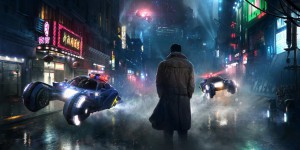Paris-London Journal [1974]
From Film Comment, November 1974. I suspect that one factor that may have kept me from scanning and posting this column until now, at least in its complete form, is my dissenting view of CHINATOWN and WHAT?, even before the former became fully canonized as Holy Writ. -– J.R.
Moving across the Channel, a profound difference in the cinematic climate becomes immediately apparent. How could it be otherwise, considering that the lifestyles that go with each city are so strikingly antithetical? Paris is all adrenalin and shiny surfaces, hard-edged and brittle and eternally abstract, the capital of paranoia (cf. Rivette) and street spectacle (cf. Tati), where café tables become orchestra seats as soon as the weather gets warm — the city where everyone loves to stare. London is just the reverse, a soft-centered cushion of comfort where trust and accommodation make for a slower, saner, and ostensibly less shrill mode of existence: relatively concrete and prosaic, more spit and less polish, a city more conducive to eccentricity than lunacy. Relatively speaking, London isn’t a movie town. It’s considerably easier to go out to films in Paris and to be more selective about what one sees, because the area is smaller and the action tends to be more concentrated. Read more

